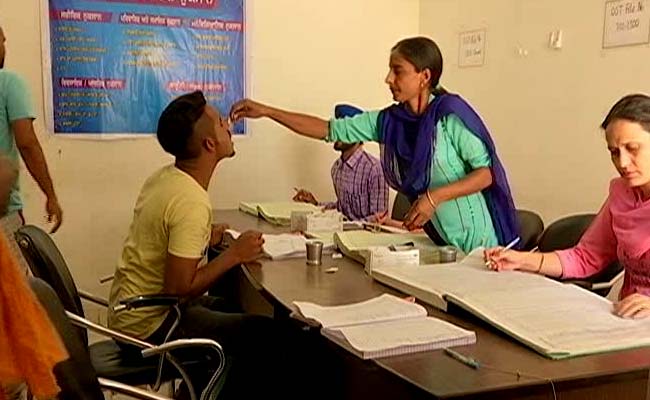Drug abusers say the government's campaign has not targeted those who traffic it.
Amritsar:
Punjab's crackdown on drug supply in Amritsar and Tarn Taran districts have had little impact on the real kingpins of the business, people who have fallen prey to the habit say.
Simarjit Singh, who is presently undergoing de-addiction at the Amritsar government hospital, said, "The Government hasn't been able to catch the real smugglers. Instead they target poor people like me."
According to them, those who have been jailed are the people who sold drugs to feed their addiction.
Gurpreet Singh, a resident of Preet Nagar in rural Amritsar, explains, "Suppose I have about Rs 15,000 with me. I will spend Rs 10,000 on drugs. A part of it (the drugs), I will use and a part of it I will sell to earn some money. This is how I make sure I have money to buy drugs."
Now many have gone underground fearing arrest. Dr Pradeep Chawla, who is a Civil Surgeon, in Amritsar said, "We noticed that persons coming to the drug rehabilitation centre were apprehensive of being interrogated by police personnel. Through this medium of yours, I want to convey to them in very clear terms: nothing of this sort happens here."
 At Tarn Taran civil hospital, about 600 drug users daily access the opioid substitution therapy or OST, a harm reduction programme, where a daily dose is given to clients as outpatients. However, an equal number of clients are not accessing the services, even though they have registered for OST.
At Tarn Taran civil hospital, about 600 drug users daily access the opioid substitution therapy or OST, a harm reduction programme, where a daily dose is given to clients as outpatients. However, an equal number of clients are not accessing the services, even though they have registered for OST.
Dr Ranbir Singh Rana, Consultant Psychiatrist at Tarn Taran civil hospital, said, "When there is a war against drugs, many of our clients go behind bars. That's why they are lost to follow up. Many of them migrate to other places, because they have cases of peddling registered against them."
The irony is that jail does not bring about a change in the situation. Sale and use of drugs continue inside. A drug user, who wanted to remain anonymous, said, "The police provides me with drugs inside jail and then I sell it to other inmates."
Criminalisation of people who use drugs has led to arrests of the poor, fuelling human rights violations and HIV and Hepatitis C epidemics. Through the global Support Don't Punish campaign, activists are now highlighting the need for a humane and public health based approach.
Simarjit Singh, who is presently undergoing de-addiction at the Amritsar government hospital, said, "The Government hasn't been able to catch the real smugglers. Instead they target poor people like me."
According to them, those who have been jailed are the people who sold drugs to feed their addiction.
Gurpreet Singh, a resident of Preet Nagar in rural Amritsar, explains, "Suppose I have about Rs 15,000 with me. I will spend Rs 10,000 on drugs. A part of it (the drugs), I will use and a part of it I will sell to earn some money. This is how I make sure I have money to buy drugs."
Now many have gone underground fearing arrest. Dr Pradeep Chawla, who is a Civil Surgeon, in Amritsar said, "We noticed that persons coming to the drug rehabilitation centre were apprehensive of being interrogated by police personnel. Through this medium of yours, I want to convey to them in very clear terms: nothing of this sort happens here."

Drug users go underground, avoiding treatment, fearing persecution.
Dr Ranbir Singh Rana, Consultant Psychiatrist at Tarn Taran civil hospital, said, "When there is a war against drugs, many of our clients go behind bars. That's why they are lost to follow up. Many of them migrate to other places, because they have cases of peddling registered against them."
The irony is that jail does not bring about a change in the situation. Sale and use of drugs continue inside. A drug user, who wanted to remain anonymous, said, "The police provides me with drugs inside jail and then I sell it to other inmates."
Criminalisation of people who use drugs has led to arrests of the poor, fuelling human rights violations and HIV and Hepatitis C epidemics. Through the global Support Don't Punish campaign, activists are now highlighting the need for a humane and public health based approach.
Track Latest News Live on NDTV.com and get news updates from India and around the world

